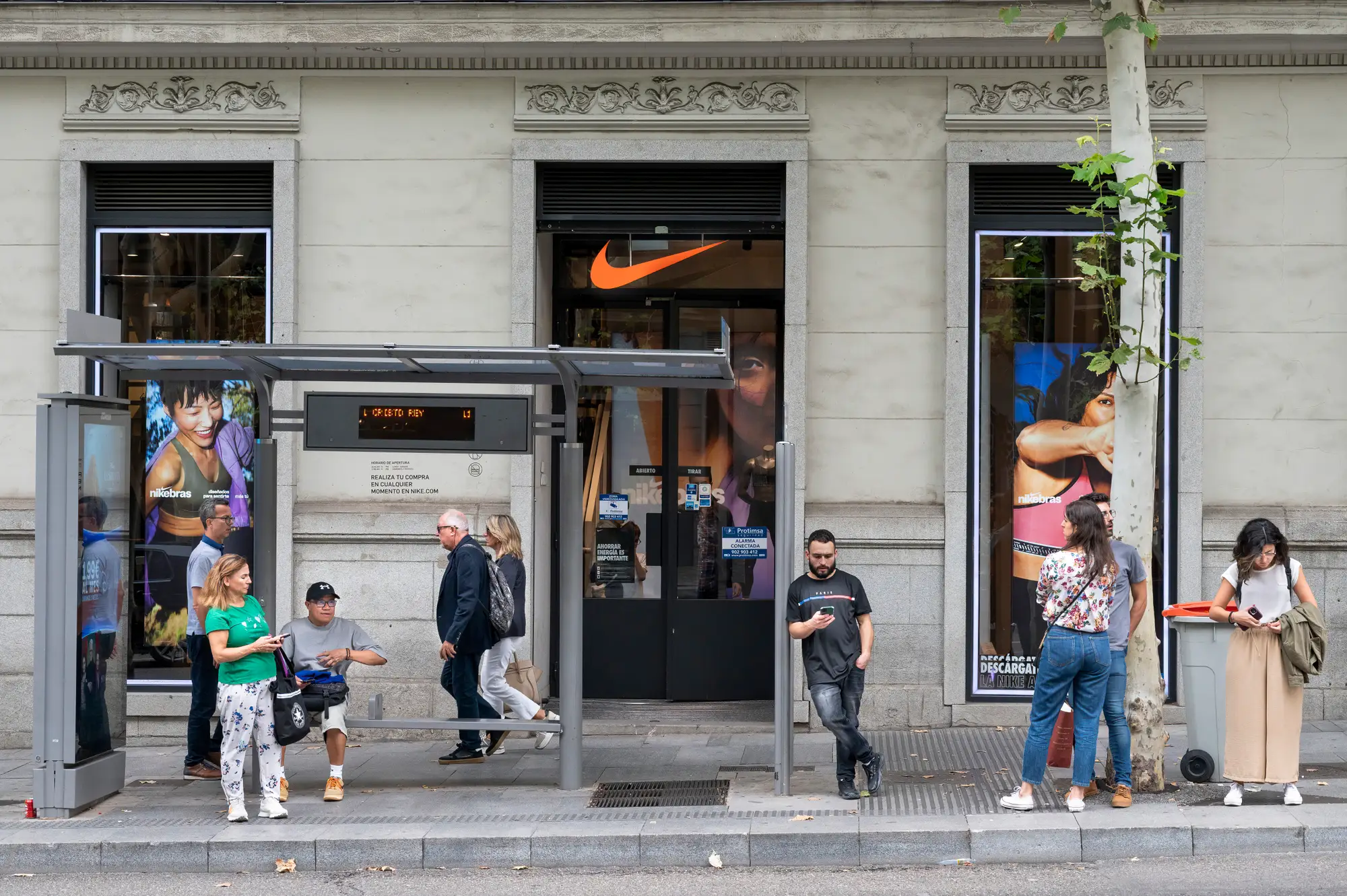Nike’s trying to pivot. It’s not working just yet.

Nike’s lost its stride — and is finding it hard to get its pace back up.
In December, the company announced a cost-cutting initiative that included simplifying its assortment of products and cutting jobs.
The aim was to deliver up to $2 billion in savings over the next three years, which “will be invested to fuel future growth, accelerate innovation at speed and scale, and drive greater long-term profitability.”
Two quarters on, Nike still appears to be looking for ways to turn its business around.
The latest effort is rehiring Tom Peddie, an executive with 30 years of experience at Nike who came back out of retirement, Bloomberg reported on Monday.
Peddie will serve as vice president of marketplace partners, which involves managing Nike’s relationships with retailers like Foot Locker. Nike spent years trying to sell less at third-party retailers and more through its own website and stores, which hasn’t been going well recently.
More recently, though, Nike has changed course and tried to mend fences with those retailers.
The new old hire comes hot on the heels of an earnings report that laid bare some of Nike’s biggest challenges.
In late June, Nike delivered a lackluster set of Q4 results and said it expects sales for its 2025 fiscal year to fall by mid-single digits, including a 10% drop in the first quarter alone. That shocked investors, especially as analysts had expected a 1% increase this year, according to Reuters.
None of it impressed investors much. Nike’s shares closed down 20% that day; the company has dropped more than 30% since the start of the year.
Some major reasons included a tougher sales environment in China, ongoing challenges with its digital platform, and what Nike CFO Matthew Friend described as “muted” forward wholesale orders with “newness not yet at scale.”
It doesn’t look like it’s going to get better very quickly, either, with Friend saying on the earnings call that the “next few quarters will be challenging.”
Meantime, CEO John Donahue said that 2025 “will be a transition year for our business.”
After the report, Nike cofounder and former CEO Phil Knight expressed “unwavering support” for Donahue in a statement.
Nike needs more key sports products
So, how can the biggest name in sneakers get its stride back?
One answer rests in what the company calls its “lifestyle” business — basically, shoes and clothing meant for casual wear. Nike’s “performance” segment, meanwhile, includes many of its core sports products, such as basketball shoes.
While revenue from performance products grew in Q4, declines in its lifestyle business overshadowed them, contributing to the worse-than-expected results.
In its last fiscal year, lifestyle products have grown to about 60% of Nike’s business, UBS analyst Jay Sole estimates.
Dividing sales more evenly between performance and lifestyle products would help Nike “restore its image as a sports brand and make its top-line growth rate more sustainable for the long term,” he wrote in a note.
“One of our big takeaways from Nike’s 4Q report is its lifestyle business needs a major reset,” Sole said.
The company has also lost ground to rivals when it comes to connecting directly with customers.
Members of run clubs in Portland, near Nike’s headquarters, say that they have been visited by representatives from smaller brands like Hoka and New Balance — but no one from Nike, The Wall Street Journal reported in June.
CEO Donahue noted that road running “remains a competitive battlefield that we are playing to win” on the call.
Another issue is Nike’s pipeline of new products.
Nike has been cutting back on some popular shoe lines to get people hyped about new ones. On the latest earnings call, Donahue pointed to areas where Nike has introduced new products, from fitness leggings aimed at female consumers to shoes specifically for road runners.
That could help drive performance sales — especially those through Nike’s digital business, a major pain point at the moment for the company. It could also help the re-instated Peddie rebuild relationships with and sales through retail partners.
But Donahue also referenced products that were still in development or months away from release. He teased new versions of Nike’s Pegasus and Vomero running shoes, for instance, that aren’t scheduled to hit shelves until the second half of fiscal 2025 while referencing a “strong wholesale order book” for coming seasons.
“Talking about newness not in stores doesn’t work anymore,” Jefferies analyst Randal Konik wrote.
While CFO Friend said management is “confident that we are repositioning Nike to be more competitive,” investors have yet to be convinced.
“This is still [Nike] and the right strategy could turn the business,” BMO analyst Simeon Siegel wrote in a note after June’s earnings report. “But we’re not convinced that strategy is presently in place.”






